Graham Reid | | 7 min read
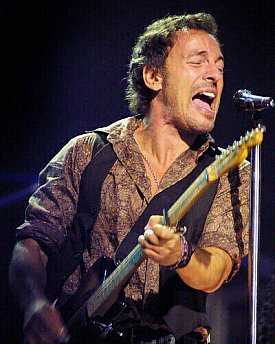
Bruce Springsteen won't forget his show
at Sydney's Cricket Ground last Saturday. He said so repeatedly and
meant it.
Losing power in a show can never be discounted as a possibility. But losing it twice would suggest alarmingly bad luck or poor technical support. Losing your stadium rock thump four times in the first hour, however?
Well, that makes a
show memorable.
The first time Springsteen and the E
Street Band were rendered mute was during his second song, War - the
air-punching and appropriate anti-war statement - and the sudden
silence deflated the early anticipation and whoop of the
almost-capacity crowd.
But where Marilyn Manson might have
thrown his teddy bear and Queens of the Stone Age walk off without
explanation, Springsteen and guitarist Steven Van Zandt collapsed
with laughter into each other's arms. Saxophonist Clarence "The
Big Man" Clemons and Springsteen's wife and guitarist, Patti
Scialfa, stepped to the front of the stage to get the crowd clapping
and singing along, "War, what is it good for? Absolutely
nothing."
When the sound returns the band do not
miss a beat - the mischievous-looking, diminutive guitarist Nils
Lofgren a Mini B at Springsteen's side - and the show roars into the
rocking No Surrender, then the emotionally uplifting title track of
Springsteen's post-September 11 album The Rising. The set steadies
itself and by Lonesome Day the sweat is pouring off the man some
still call The Boss.
After the second sudden loss of sound -
more laughter and Van Zandt menacingly leaning over the sound guy
like Silvio Dante, his character in The Sopranos - Springsteen jokes
that this was the recurring dream he'd had.
"But my analyst told me it was
just a dream," he laughs.
The bad dream halted their performance
twice more - the animated and amusing Van Zandt, a show in himself,
at one point sitting down and talking with the front row - and at the
end when he vamped lyrics in the style of a rock'n'soul revival show
Springsteen promised, "Tomorrow's gonna be a better day ... and
someone's gonna get get fired.
"No, just joking."
Oddly enough, while these problems
disrupted the momentum and long arc of the show - a performance of
tension and release ending in uplifting, celebratory rock'n'roll -
they didn't detract from a crowd-pleasing performance which ran
three-and-a-quarter hours, with Springsteen off stage only a few
minutes in that time.
By way of thanks to an audience which
sang his songs back to to him through each power failure - sudden,
none more than a minute - he spontaneously called up a few oldies the
band hadn't played in a while.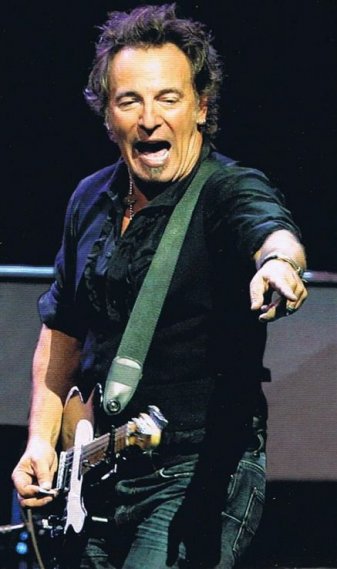
At that point it was obvious what a
consummately professional unit the well-drilled nine-piece E Street
Band are, violinist Soozie Tyrell dragged to the front for an
impromptu duel with The Big Man.
Some might say an outdoor Springsteen
show these days epitomises the bombast of 80s stadium rock, although
that accusation wilts when Springsteen makes his performances so
personal and obviously enjoyable. And when they pulled out the hoary
old bar-room rocker Ramrod you were reminded of their journeyman
Jersey Shore origins in clubs and battered ballrooms.
But Springsteen and the E Street Band
have come a long way in the thirtysomething years since, and although
the set reached back to that time for an impromptu Rosalita, it was
also as current as today's headlines when he included moving material
from The Rising.
One of Sydney's hip street-press
magazines not only snubbed commenting on Springsteen being in town,
but suggested where else you could go to avoid him - Beck, as it
happened. But that cynicism misunderstands what Springsteen's shows
are about.
Springsteen is a cypher for the
affirmation of faith in rock'n'roll redemption ("We learned more
from a three-minute record than we ever learned in school" in No
Surrender) and increasingly - especially in songs from The Rising -
the curative and cathartic power of music.
When he sings "I woke up this
morning to an empty sky" it is both about and beyond the events
of September 11. On The Rising these songs sound forced into the
context of a CD, in concert they co-exist with songs of affirmation
and healing from all points of his career and make better and bigger
sense.
Springsteen is also a man of his
post-Vietnam generation, so when he sings Born in the USA - in Sydney
his opener done on bottleneck slide guitar as a mournful,
regret-filled country blues - it encapsulated the disillusion of the
Reagan era when it was written. Understandably that doesn't mean much
if you were 2 years old when it came out in '84 and are now going to
dance clubs or Beck - but Springsteen audiences are predominantly
those who remember those chill years of Reaganomics and its various
offshoots. It means something just as powerful now about the current
disillusion.
And when he stepped forward for two
songs from The Rising with Scialfa at his side, there was a palpable
solemnity. To silence an audience in a sports stadium with just
guitar and voice is a rare skill and says much about the undeniable
power of his emotionally affecting songs. For him as much as his
audience. When Danny Federici's organ solo cut in on the holy sound
of You're Missing the look on Springsteen's face was as if he was
hearing it anew and for the first time fully understanding it.
In a performance which went from
flat-tack rock (Glory Days, Badlands, Backstreets and Thunder Road)
through poignant or populist pop (Bobby Jean, Dancing in the Dark)
and his new party-rock song Mary's Place, which sounds like it was
written around the time of Rosalita, Springsteen still banners the
belief that rock'n'roll can heal the pain of life through its sheer
celebratory quality.
It's rock'n'roll redemption from the
man who sings "Well, I got this guitar and I learned how to make
it talk". And so he does.
Of the new songs, the title of Countin'
on a Miracle speaks for itself. But even My City of Ruins -
apparently written about the Jersey Shore inner-city development but
taking new life post-September 11 - has as its chorus "rise up"
and Lonesome Day promises "It's all right".
And it is all right. This was a rock
show against the backdrop of nations at war, and he said thoughts
were with the American and Australian soldiers and innocent Iraqi
civilians.
Maybe it was a mere distraction or
diversion from those terrible events, but people cannot live with
tragedy all the time. "This too shall pass," he sings on
Lonesome Day and it could mean anything: The job you hate, the pain
of the separation you are going through, the loss of a loved one, or
a world going to oil-fuelled hell in the fires of ignorance and
anger.
Springsteen's songs can be that
ambiguous, that universal yet simultaneously personal.
They come from a man who writes himself
and his generation into them and gives himself away on stage, whether
it be through sweat-drenched passion as the new Man in Black, an
inheritor of Johnny Cash's mantle speaking for the dispossessed and
voiceless, or by his self-effacing humour which humanises a
performance in front of thousands of anonymous faces in the darkness.
"This earns me credit points
around the house," he quipped as he did a sexy shuffle towards
Scialfa.
She offered a bemused smirk, an
expression which says, "Who are you kidding? You're not The Boss
of me."
After yet another sound failure he
laughed and warned the audience not to use their cellphones, said
that they had people going round the nearby suburbs telling people
not to use their hairdryers. He made light of the problem - and the
band played on. And on, and on.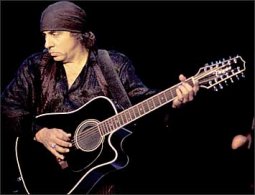
Somewhere around the two-hour mark he
makes like he is leaving the stage then, almost as an afterthought,
grabs the mike and says, "We can't go home now just as we got
this shit workin'." They play for another hour. Three and
a-quarter hours on stage?
As a performer The Boss' energy is
undiminished. At 53 he still sprints across a stage and slides on his
knees to the feet of The Big Man for a sax solo, can still pogo and
play at the same time.
Yes, a Springsteen stadium show may
seem an anachronism these days, a throwback to the Eighties. But, even
putting aside his rare passion as a performer and the strength of his
band, his songs alone would carry the weight. They have written
themselves into people's lives, convey the aspirations and failed
dreams of his audience, whether real or imagined.
In Sydney the power may have gone, but Springsteen still had it.

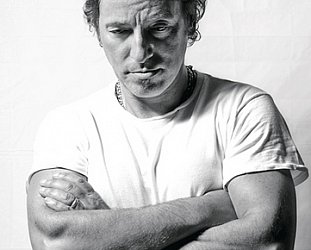
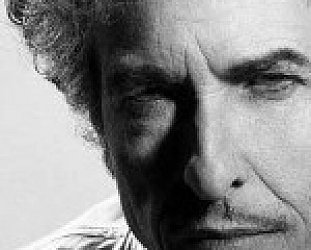
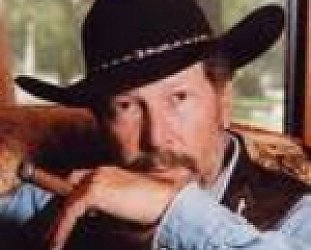
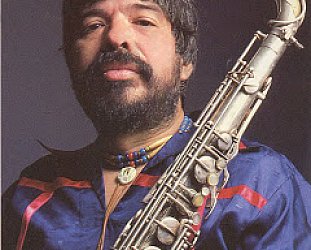
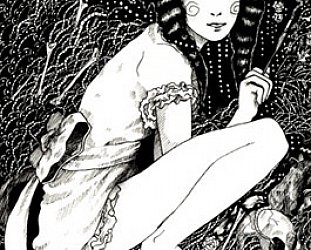
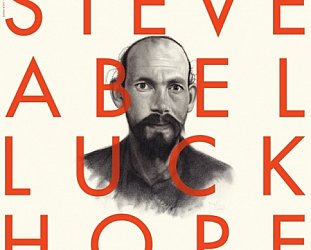
post a comment